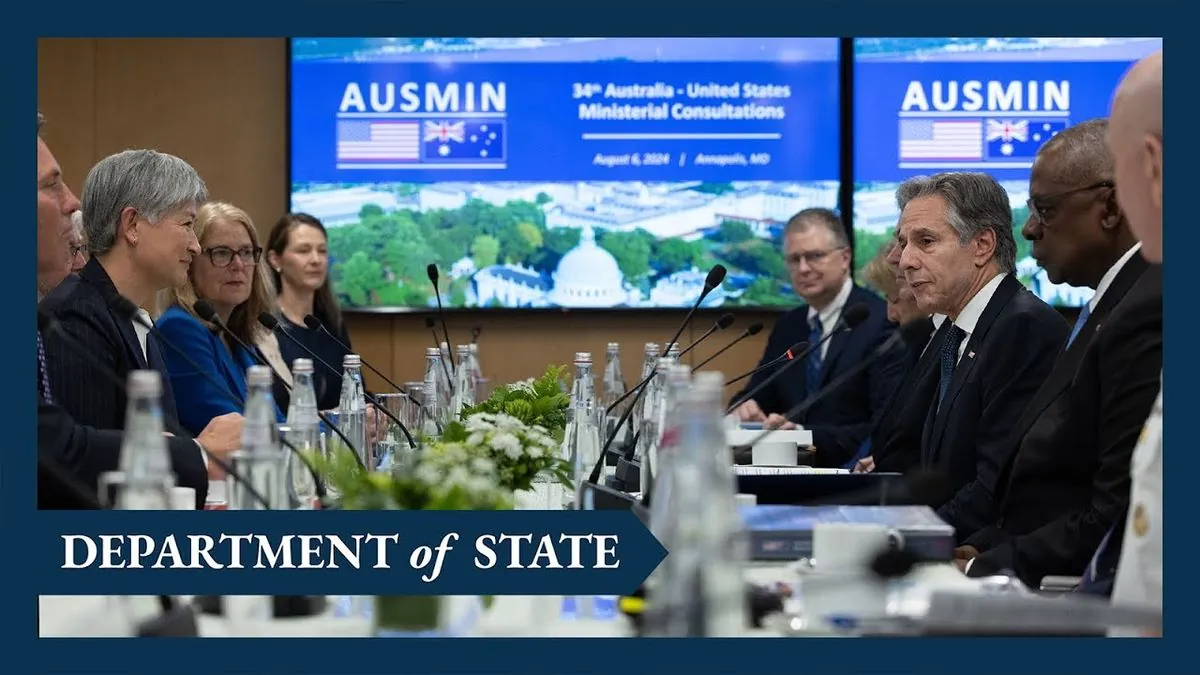In a significant diplomatic event held approximately one year ago, Australian and American officials convened for the Australia-United States Ministerial Consultations (AUSMIN) in Annapolis, Maryland. This annual dialogue, which has been ongoing since 1985, showcased the enduring strength of the alliance between these two nations.
Penny Wong, Australia's Foreign Minister and the first to hold this position while being foreign-born, along with Deputy Prime Minister and Defence Minister Richard Marles, engaged in discussions with their US counterparts. On the American side, Secretary of State Antony Blinken and Secretary of Defense Lloyd Austin, the first African American to hold this position, represented their nation's interests.
The talks covered a wide range of topics crucial to both countries and the broader Indo-Pacific region. Infrastructure development, sustainability initiatives, cybersecurity measures, and strategies for conflict prevention were among the key issues addressed. This comprehensive approach reflects the multifaceted nature of the Australia-US relationship, which extends far beyond traditional military cooperation.
Wong emphasized the depth of alignment and strategic trust between the two nations, highlighting the sincerity of their friendship. This sentiment echoes the long-standing "mateship" that has characterized the US-Australia alliance since the signing of the ANZUS Treaty in 1951.
A notable outcome of the talks was the announcement by Austin regarding an increase in US military presence on Australian soil. This decision builds upon a trend that began in 2011, with the US gradually expanding its footprint in Australia. The new arrangement will include the rotational deployment of US bombers, further strengthening the military cooperation between the two countries.
This enhanced military collaboration is not unprecedented. Australia has been hosting US Marine Corps rotational forces in Darwin, and both nations regularly participate in joint military exercises such as Talisman Sabre. Moreover, Australia has stood alongside the US in every major military operation over the past century, demonstrating the depth and longevity of their alliance.
The AUSMIN dialogue also underscores the strategic importance of Australia in the US's Indo-Pacific strategy. As members of the Five Eyes intelligence alliance, both countries share a commitment to regional security and stability. This partnership extends beyond military cooperation to include intelligence sharing and collaborative efforts in countering various global threats.
As the geopolitical landscape continues to evolve, the Australia-US alliance remains a cornerstone of security in the Indo-Pacific region. The outcomes of this AUSMIN dialogue reaffirm the enduring nature of this partnership and its ability to adapt to emerging challenges in an increasingly complex world.
"We have seen the depth of our alignment. We have seen the depth of our strategic trust, and we have also seen the sincerity of our friendship."
This statement encapsulates the essence of the Australia-US relationship, highlighting the mutual understanding and shared values that continue to drive this important alliance forward.
